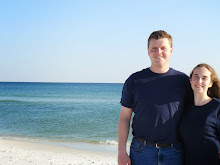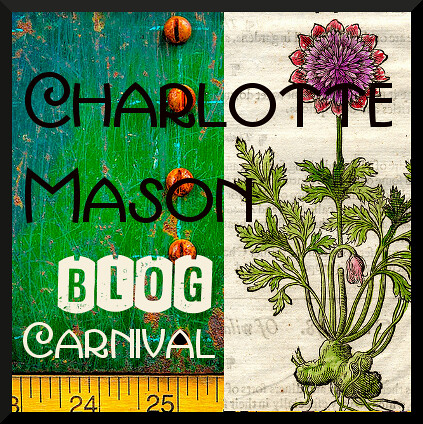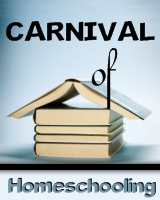Some time ago I read A Thomas Jefferson Education by Oliver DeMille. I've been meaning to review this for a friend, to whom I must apologize for taking sooo long!

I'll admit to not reading the entire book thoroughly. Since I have so many things I want to read, I've taken to skipping or scanning things that don't really seem relevant to me at the time in books like this. I'm looking for help in them, not just something to read. I'm not previewing them for my children either, so I'm in a different state of mind. Just so you know where I'm coming from. You can dismiss what I'm going to say about the book based on these grounds if you want to. But at the least you can know that I didn't find it so incredible that I wanted to read every word.
Part of the reason it took me so long to review this (which might distract you from the fact that I'm an incredible procrastinator, ha) is that when I started to look more deeply into it, I discovered that there's some controversy about things surrounding Thomas Jefferson Education and the college DeMille founded called George Wythe College. Some people
think he's all about making money and doesn't really deliver a quality education. He's a Mormon, and some of the Mormons are embarrassed by him (although other Mormons aren't, and are really into Thomas Jefferson Education). If you want to read more about this topic, I've provided a few links below this paragraph. I'm not going to vouch for them by any means, as I didn't take the time to analyze it all (and there's a lot there), but this is just to let you know it's out there if you care to look into it. What I did look at was interesting. It raises some questions about the content of the book as well.
Why I Don't Do TJEd
Times and Seasons
The Making of a University
These things gave me pause. I don't know DeMille, and I haven't studied the education of Thomas Jefferson himself in depth, or other topics broached on these sites. I don't want to needlessly stir up controversy, and it's possible it's unfounded. Yet it is a little disconcerting that there's so much surrounding this. I thought it was fair to present this so people who are interested can look. The above pages raise some good points and discuss them extensively. Here's one I found especially important:
"Thomas Jefferson was an adult with a college degree when he was mentored by Wythe. Before that time, he had the education standard to his day and status: a classical education, heavy on Greek, Latin, history, and memorizing boring things. So the actual “Thomas Jefferson Education” involved (1) a classical education, (2) a standard college degree, and (3) mentoring as a youngish adult." from Times and Seasons (second link above)
In other words, it's somewhat misleading to say that the method of educating DeMille promotes is a "Thomas Jefferson" education, since Thomas Jefferson himself did not get something akin to it until he was an older student. This seems to be a rather key point, don't you think? Just a simple bit of research shows that Thomas Jefferson's education was indeed far different from what is portrayed in this book, at least while he was young, and I find it disturbing that this isn't discussed in the book. From what little I know, Jefferson was an incredible student long before he learned from George Wythe. Personally, I seriously doubt "Thomas Jefferson" Education, or classical education, or any other education alone explains a man like Jefferson.
Some other things I noticed while reading:
Thomas Jefferson Education seems to be an attempt at a merge of classical education and unschooling -- which sounds rather odd, but it is an interesting idea.
DeMille is a fair writer and the book has inspiring themes. He starts out talking about 9/11 and how we need leaders in situations like that, calls on us to develop leadership in our children, etc., and he says some true and relevant things.
Yet it's frustratingly ambiguous. I'm kind of getting used to some of that, because many authors write that way and I've come to think that some of it is just my personality that causes it to bother me. I think I tend to need more specifics than some other people would to apply the things they read. However, it may be a problem when a book about how we need to read classics doesn't even seem to clearly define what a classic IS. Did I miss it? Just one example.
I also thought this book was extremely idealistic, to the point of being highly impractical. I tend to be an idealist myself, and it would appear that many of those who come up with "new" theories about how things ought to be in the field of homeschooling and write about them are also rather idealistic. This isn't necessarily a problem, but it can be. Idealistic people reading idealistic books need a little bit of a reality check from time to time. Sometimes it's easy for us to think we actually have to do everything just the way it's presented. If it's impossible, that's not really a good situation, because it can make you feel like you've somehow failed just because you can't replicate the author's exact vision.
I like a lot of Charlotte Mason's ideas, for example, but there's a lot of idealism in her writings that I just can't apply in my situation. One example is being outdoors with my young children in a place where they can run about and explore the countryside daily for hours. So while I can gain a lot of good thoughts from Miss Mason, I need to make it practical for me if I wish to apply something of the principle she's presenting, without thinking I must follow everything. I haven't read all of Miss Mason's writings, either, although I've read substantial portions of her Home Education book, but I do think it comes across in her writing that she views what she's presenting as the ideal, and that she realizes it's not practical in many situations.
The same needs to be understood with Thomas Jefferson Education, yet the tone of the book didn't come across as such to me, but more as though the ideas and methods presented are essential. To be fair, I joined a Yahoo group when I was searching for more specifics about this method, and there it is mentioned that the book expresses ideals and "each family must decide what will work for them," etc. Okay, that's fine, and reassuring, but it would have been nice if the book had presented it more like that then, in my opinion.
Those significant criticisms aside, I did find the book thought-provoking and inspiring in some ways. For example, it inspired me to look into John Holt's writings a bit. I admit that before this book I had sort of dismissed the "unschooling" camp. "Unschooling is unscriptural" -- that was kind of my thought, along the lines of the child left to himself causing his mother shame (see Proverbs 29:15). However, while I think you could view unschooling that way in some applications, and personally I still would not advocate for strict application of it (it's another overly idealistic approach in my opinion, in its strictest form), there are definite benefits to it. You have to admit that interest-led/delight-directed learning is really great. Something about this merger of unschooling and classical education got me to check out one of Holt's books from the library (How Children Learn). I ended up being pressed for time and not being able to look at it much at all before it had to go back (this frequently happens to me, especially if it's a popular book and someone puts in on hold so I can't recheck it), and it hasn't been enough of a priority for me to look into it further at this point. It's on my list as something I may recheck someday (we'll see). I think if you have the time Holt's books are worth peeking into at least, just from the standpoint that he really studied children, respected and admired them, and there are things to gain from that. I think it must be kept in perspective, and I'm pretty sure that I would differ from Holt greatly in some of my views, but it's interesting reading, what little I read. Children do deserve our respect and admiration.
A Thomas Jefferson Education also got me to thinking about my "philosophy" of homeschooling more (or kept me thinking about it is perhaps more accurate -- I guess I was already thinking about it or I wouldn't have gotten this book in the first place). I was inspired to once again look through some of my favorite books on homeschooling, and I especially spent more time with Charlotte Mason's writings than I had before. Not because DeMille mentions her -- I don't recall him doing that -- but because I was just comparing and contrasting methods and wanted to learn more about hers since I'd been thinking about educational philosophy. It was sometime around this time that I decided to implement Ambleside Online's reading list (with my own modifications) and see how it went (wonderfully, although we've since gone on tangents or modified the list significantly for various reasons, but I still refer to it).
DeMille quotes liberally from other authors, and that interested me in several other writings, some of which I've looked into a bit and some of which I haven't yet. But there are some quotable things in the book. This post is getting quite lengthy, so I think I might post some of them later.
I also appreciated that DeMille highly encourages parents to focus on their own education, because parents need to know in order to teach their children, and by educating yourself you are helping your children indirectly. I needed that perspective. In becoming my children's teacher, I have become aware how sorely my own education was lacking in some areas (even though I received what was probably one of the best public high school educations available in the US). It's easy to feel like I don't have the time to focus on my own learning. If I see it as solely for me it's easier to think that I shouldn't bother to take the time, it's "just for fun" or something. But in reality, as long as it's kept in balance, the benefits I gain will benefit my children as well, both because I will have more mastered knowledge to impart to them and also because they will see my example in valuing learning. I wonder if DeMille realizes how dangerous this is for someone who before the Season of Many Moms (as in "Mom...Mom?...Mom!!!" said by one of several children at less-than-two-minute intervals throughout many waking hours) could easily spend all day with her nose in a book... ;)
Overall, I'm glad I looked into this book. I did purchase it, and I'm glad of that too, although I did think the price was steep and I was unable to find a used version at the time (I hope it's easier now but I don't know about the used -- looks like the new version is some cheaper at Amazon now, but it's paperback). I think it should be read with caution, and "taken with a grain of salt," but it's thought-provoking and interesting, and I came away from it with some valuable things. I wasn't convinced to follow this method of schooling as presented, but I'm sure that some of the thoughts gained both from DeMille and from others he mentions have and will continue to become a part of who I am as a teacher and contribute to my children's learning.
For more book reviews, follow this link or see the tab at the top of The Mommy Earth.
This post is part of the Carnival of Homeschooling, hosted this week at The Informed Parent.









Hmmmm, that's a very interesting and thorough review. It's still sitting in my 'box of books to read' (which keeps getting fuller instead of emptier!). I've heard so many rave about this book, so it's interesting to hear another side to it. Makes me even more curious. . .I may have to move it closer to the front of the box! :) Thanks for the review.
ReplyDeleteBTW, didn't see the analytics in a quick perusal of my account, but thanks for sharing the tip. I'll have to check that out in more detail sometime. . .(but I'd rather write a post, to tell you the truth! chuckle)
Sorry it took so long. I'll be interested to hear what your thoughts are after you read it as well.
ReplyDeleteNo problem, Amber--I always have waaay too many things going on to be impatient! ha! ;)
ReplyDelete